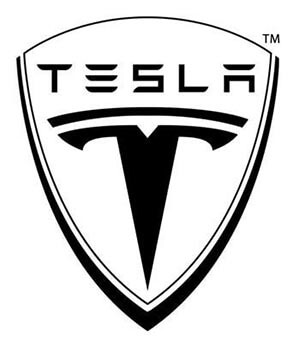
Tesla’s autopilot system is under investigation by the U.S. government after reports of numerous collisions involving parked emergency vehicles and crashes into crossing semi-trucks.
The federal government opened a formal investigation into the Tesla Autopilot partially-automated driving system.
The Tesla Autopilot federal investigation covers 765,000 vehicles. This includes almost everything that Tesla ever sold in the United States since the 2014 model year. The vehicles subject to the investigation include the entire Tesla model lineup: Model Y, X, S and 3 manufactured between 2014 and 2021.
Specifically, Tesla Autopilot uses cameras and thousands of images that the computer neural network uses to determine if there are objects in the way. It’s unknown at this time why it is unable to detect parked emergency vehicles and perpendicular trucks in its path.
One person died and 17 others were injured in the collisions involving emergency vehicles. These traffic accidents are subject to the probe by the National Highway Traffic Safety Administration (NHTSA), according to its website.
Tesla Collisions with Emergency Vehicles
In the past three years since 2018, the NHTSA has identified 11 collisions involving a Tesla driving on Autopilot or Traffic Aware Cruise Control. Also, these traffic accidents involved emergency vehicles using flashing lights, flares, cones warning of hazards or an illuminated arrow board, the NHTSA said.
Also, the collisions involving emergency vehicles included one on January 22, 2018 in Culver City where the Tesla struck a parked firetruck partially in travel lanes with lights flashing. Furthermore, other collisions involving emergency vehicles were in Laguna Beach, California; Norwalk, Connecticut; Cloverdale, Indiana; West Bridgewater, Massachusetts; Cochise County, Arizona; Charlotte, North Carolina; Montgomery County, Texas; Lansing, Michigan; and Miami, Florida.
Additionally, there are recommendations from the National Transportation Safety Board to limit Autopilot’s use. The NTSB wants to keep its use to certain areas where it can be safely operated. Also, the agency encourages Tesla to create a system that ensures drivers pay attention while using this feature. Unfortunately, this is often bypassed by motorists with devices such as the Autopilot Buddy sold in the aftermarket.
Tesla Autopilot Did Not Detect Crossing Semi-Trucks
In fact, the NTSB previously blamed Tesla as well as its drivers and an absence of NHTSA regulations for two collisions where the vehicles crashed underneath big rig truck trailers. Tesla Autopilot failed to detect the big rig trucks as they crossed in front of the cars.
Specifically, the agency felt that there ought to be safeguards in place to limit the use of these unproven electronic driving systems. In one of the collisions involving a truck, a 50-year-old driver of a Tesla Model 3 died as the tractor trailer crossed in front of the car. Neither the driver, nor the Autopilot detected it and no brakes were applied. The deadly crash happened in Delray Beach, Florida in 2019.
Misuse of Autopilot by Tesla Drivers
One issue discussed by the federal agencies is the misuse of the Autopilot feature by drunken drivers or motorists riding in the back seat of their Tesla. The system is designed to work with drivers who are ready to intervene at all times.
Since June 2016, the NHTSA has investigated 31 collisions involving partially-automated driver assist systems. Twenty-five of those collisions involved Tesla Autopilot and there were 10 deaths. The system should to keep the vehicle centered in its lane and a safe distance from vehicles in front of it.
California Lemon Law Attorney James Johnson

If you purchased a Tesla and you have repeated problems, it may be time to call for help.
California Lemon Law Attorney James Johnson will review your case and let you know if it qualifies as a lemon.
We recommend that you obtain an invoice for all repairs and recall visits from the dealership. These documents will support your potential case. Should the vehicle experience repeated issues or become a safety risk, these documents support the Lemon Law Claim. Contact us for a free case review at 800-558-1087.
- Your “New” Car Isn’t Reliable? Recent Wins for our Lemon Law Clients - October 22, 2025
- Hyundai Santa Fe Recall 135K Santa Fe SUVs 2024, 2025 Models - October 10, 2025
- Ford Recall 115,000 F-250, F-350, F-450 Trucks for Steering Defect - September 24, 2025
